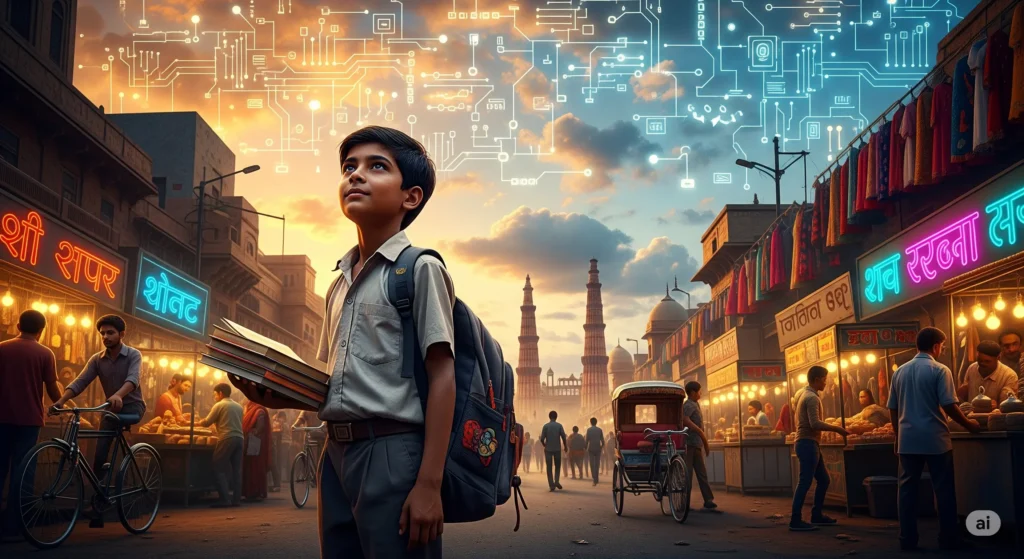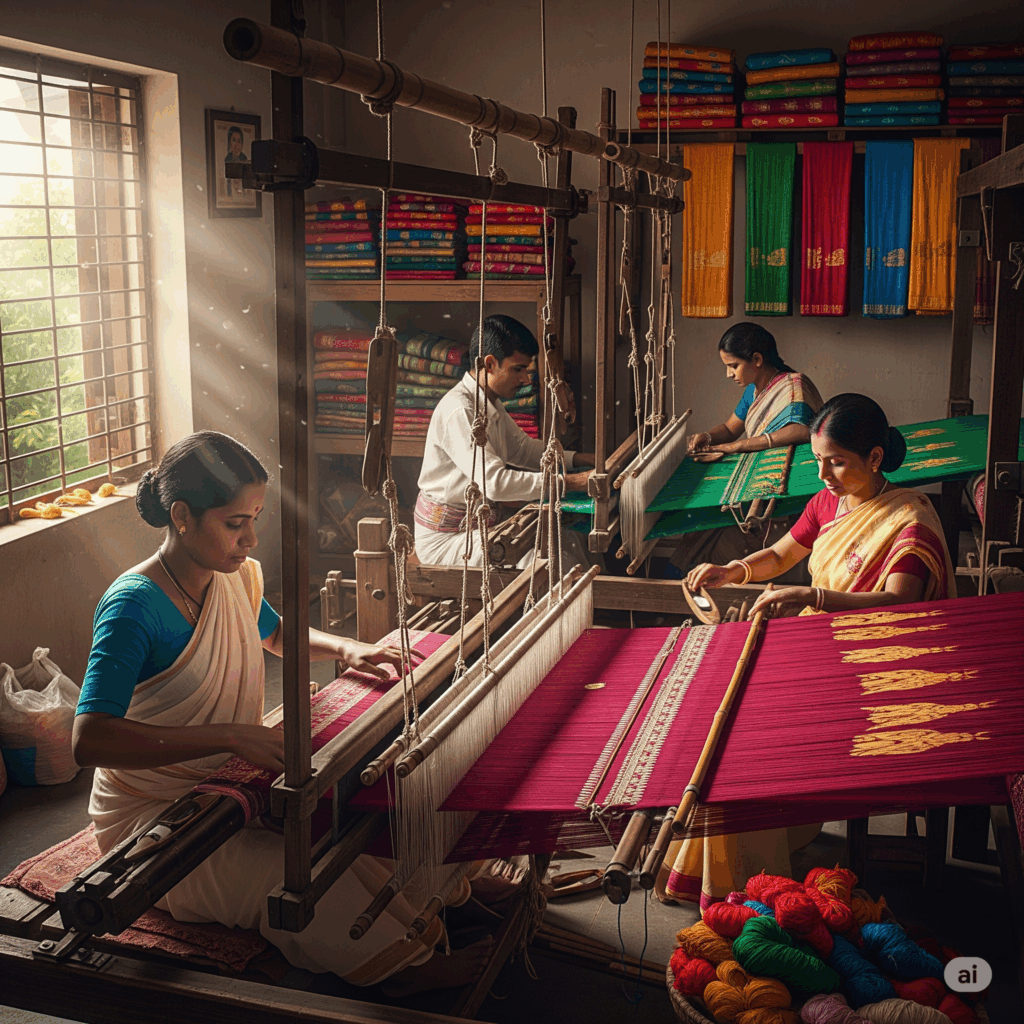Born in a World Where Opportunity Was a Luxury
Krish Prabhu’s story begins in the heart of Tamil Nadu, in a modest household where every rupee had a purpose and every day was a quiet battle against scarcity. His father was a small government employee, earning just enough to keep the family afloat but never enough to cushion against life’s unexpected blows. The house they lived in was simple—cement floors, tin roofs in some parts, and walls that often cracked in the monsoon. As a boy, Krish learned early that nothing would ever be handed to him.
In those years, Tamil Nadu was still wrestling with post-independence economic struggles. Good jobs were few, and English-language education—a gateway to better careers—was beyond the means of most families in his neighbourhood. Children like Krish had to make do with government schools where teachers were overworked, books were scarce, and the midday meal was sometimes the only hot food of the day.
Education Against the Odds
From the age of six, Krish understood that education was the only way out. But pursuing it meant sacrifices that most children shouldn’t have to make. The nearest school was several kilometres away, and his family couldn’t afford a bicycle. Every morning, rain or shine, he would walk barefoot on uneven roads to attend class, his schoolbag stitched and re-stitched to last another year.
When he returned home in the evenings, there was no electricity half the time. Studying meant sitting near the doorway to catch the fading light, and later, working by the dim flame of a kerosene lamp. While other children might have played in the streets, Krish’s evenings were spent memorising maths tables or trying to understand passages in English with the help of a borrowed dictionary.
His parents, though not highly educated, were determined that their son would have a better life. They often skipped small comforts—new clothes, better meals—just to buy him exam preparation books. Krish knew every rupee spent on his education was a gamble for the whole family, and he was determined not to let it go to waste.
Facing Social and Cultural Barriers
In his town, ambition was often frowned upon. Many neighbours believed that children from modest families should be content with modest dreams. The idea of going abroad, of working in global business, was dismissed as unrealistic. Krish was reminded constantly of his “place” in society.
But these voices only fuelled him. He sought out mentors—teachers who believed in his potential—and asked relentless questions. He’d stay after school to practice English pronunciation or learn about topics beyond the syllabus, often copying notes by hand because there were no photocopy shops nearby.
The Leap from Local to Global Thinking
By his teenage years, Krish had developed a stubborn belief: that he could compete with anyone if given the chance. He excelled in mathematics and science, winning local competitions despite lacking the coaching or resources his peers in bigger cities enjoyed. But even as his talent became evident, the pathway to higher education was fraught with obstacles.
University tuition was high, and while his family could manage some expenses, the cost of books, transportation, and exam fees threatened to derail his ambitions. Krish took on small tutoring jobs, teaching younger students after school, to earn enough to cover these costs. This early experience—managing time, balancing responsibility, and negotiating small payments—was perhaps his first taste of entrepreneurship.
Crossing Oceans on a Shoestring Dream
Krish’s academic success eventually earned him admission to study abroad, but the financial reality was harsh. The family had no savings to fund international travel or foreign tuition. Scholarships covered part of the expenses, but the rest came from community support and a small loan from a distant relative.
Landing in the U.S. was a cultural shock. The comforts and abundance around him contrasted sharply with the scarcity of his childhood. But instead of feeling intimidated, Krish felt prepared. The discipline forged in those years without resources—maximising every opportunity, valuing every bit of knowledge—made him a sharper student and a hungrier professional than many of his peers.
Building a Reputation in the World of Finance
Krish’s entry into finance was not by accident but by calculated pursuit. His early roles in technology and telecommunications gave him the ability to understand complex systems—skills that would later translate into managing multi-billion-dollar investment strategies. His ascent was rapid; colleagues described him as both analytical and fearless, a combination honed by years of surviving against the odds.
When he eventually became Managing Director at Fortress Investment Group, he was not just running numbers. He was shaping an $80 billion hedge fund’s strategy, making calls that could ripple through global markets. And yet, those who worked closely with him noted that he never lost the humility of his beginnings. He valued efficiency, avoided unnecessary luxury, and kept a personal discipline that mirrored the frugality of his upbringing.
Giving Back to the Roots
Despite his high-profile career, Krish stayed connected to Tamil Nadu. He funded scholarships for underprivileged students, often targeting small-town schools like the one he had attended. His philosophy was simple: talent exists everywhere, but opportunity does not. And if his own life was proof of anything, it was that bridging that gap could change everything.
He also worked with community initiatives in the U.S., mentoring young professionals from disadvantaged backgrounds. Many described him as generous with both his time and his wisdom, always stressing that the most important investments are those made in people, not portfolios.
Lessons from a Childhood of Struggle
Krish Prabhu’s journey stands as a case study in resilience. His early life in Tamil Nadu taught him lessons that no business school could replicate:
- Scarcity breeds creativity — When you have nothing, you learn to make the most of everything.
- Discipline outweighs talent — Raw intelligence is valuable, but consistent effort is what transforms potential into success.
- Barriers are mental as much as material — The hardest part of escaping poverty is convincing yourself you can.
Today, his story resonates not just because of his financial achievements, but because it proves that global success can emerge from the humblest beginnings—provided one is willing to fight for it, day after day, year after year.






